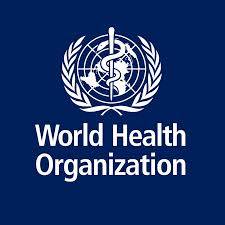
The World Health Organization (WHO) stands as a cornerstone of global health governance, committed to achieving the highest possible level of health for all people worldwide. Founded on April 7, 1948, WHO operates under the auspices of the United Nations and serves as the leading international health organization, shaping policies, setting norms and standards, and coordinating responses to health crises across the globe.
Mission and Objectives
WHO’s primary mission is to promote health, keep the world safe, and serve the vulnerable. Its core objectives include:
1. Health Promotion: Advocating for preventative measures and health education to improve well-being globally.
2. Health Protection: Monitoring health trends and responding swiftly to outbreaks, emergencies, and health threats.
3. Health Systems Strengthening: Assisting countries in improving their health systems to deliver equitable and accessible health services.
4. Health Equity: Ensuring that all people, regardless of their circumstances, have access to essential health services.
Structure and Governance
WHO operates through a hierarchical structure designed to efficiently address global health challenges:
• World Health Assembly (WHA): The supreme decision-making body composed of delegations from all WHO member states, convening annually in Geneva, Switzerland, to set policies and approve budgets.
• Executive Board: Comprising 34 members elected by the WHA, it meets twice a year to implement and oversee policies.
• Secretariat: Headed by the Director-General, the Secretariat is responsible for day-to-day operations, program implementation, and coordination of global health initiatives.
Key Functions and Initiatives
WHO’s multifaceted role includes:
• Disease Eradication and Control: Leading global campaigns against diseases like polio, malaria, and HIV/AIDS.
• Emergency Response: Mobilizing rapid responses to health emergencies such as pandemics, natural disasters, and conflicts.
• Health Policy Development: Providing evidence-based guidance on health issues ranging from nutrition and mental health to environmental health and noncommunicable diseases.
Recent Challenges and Achievements
In recent years, WHO has faced challenges such as managing the COVID-19 pandemic, combating vaccine hesitancy, and addressing health disparities exacerbated by socio-economic inequalities. Despite these challenges, WHO has achieved significant milestones, including the eradication of smallpox, advancements in maternal and child health, and the development of global health frameworks like the International Health Regulations.
Collaborations and Partnerships
WHO collaborates closely with governments, non-governmental organizations, academia, and the private sector to achieve its goals. Partnerships with organizations such as UNICEF, the World Bank, and the Gates Foundation amplify WHO’s impact and reach in addressing global health issues.

Future Directions
Looking forward, WHO continues to adapt to emerging health challenges, such as climate change impacts on health, antimicrobial resistance, and the growing burden of noncommunicable diseases. Its commitment to promoting health equity and resilience remains steadfast as it strives to fulfill its vision of “Health for All.”

Conclusion
The World Health Organization plays an indispensable role in safeguarding global health, advocating for equitable access to health services, and responding to health emergencies. As the world faces increasingly complex health threats, WHO’s leadership and collaboration are pivotal in achieving sustainable health outcomes for all populations worldwide.
 blogpay
blogpay





















